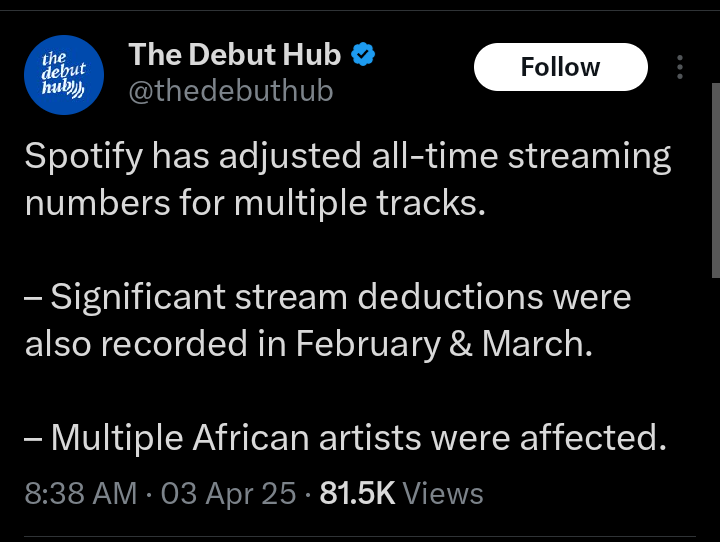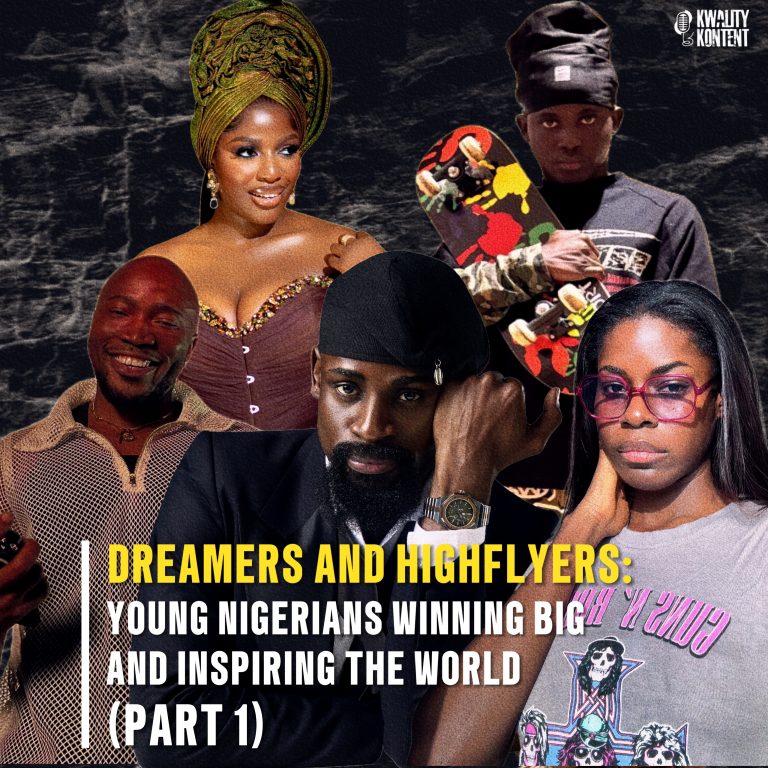In what can only be described as the digital equivalent of having your lunch money stolen, Spotify performed a massive adjustment of streaming numbers that has hit Nigerian artists particularly hard. The streaming giant has been on a cleaning spree, wiping away streams from artists’ totals.

February and March apparently marked Spotify’s season of “spring cleaning,” with significant stream deductions that left many Nigerian artists checking their stats twice and rubbing their eyes in disbelief. Major names including Davido, Joeboy, Adekunle Gold, and Teni woke up to find their hard-earned numbers slashed.

It’s like showing up to your bank account and finding out someone decided your money wasn’t real enough.
The affected artists’ silence on the specific charges is telling. While there’s been vague talk about “unfair targeting,” none have directly addressed the allegations of stream manipulation or offered transparent explanations for their suspicious numbers.

The Stream Farm Crackdown
Behind the scenes, this significant change is part of Spotify’s larger crackdown on “stream farming” – the practice of artificially inflating streaming counts using questionable means. DSPs such as Spotify and Apple Music are aggressively investing on systems that monitor streaming activity for any signs of fraud.
The irony of the situation isn’t lost on close observers of Nigeria’s music industry. The very platforms that introduced the “vanity metrics” of numbers and charts – turning streaming figures into the primary currency of success – are now penalizing artists for playing the game too aggressively.
While Spotify has remained tight-lipped about the specifics of its crackdown, the company appears to be simply doing what any platform must: protecting the integrity of its ecosystem.

Artificial streaming doesn’t only boost artists’ egos; it also affects the platform’s recommendation algorithm, harms artists who follow the rules, and ultimately misleads consumers about what’s truly popular.
Much like social media platforms removing fake followers or search engines penalizing websites for buying backlinks, Spotify’s purge represents a necessary correction in a system that had become corrupted.
For artists who’ve built their reputations on questionable streaming numbers, the path forward is clear: adapt to a more transparent ecosystem or continue to see their numbers fluctuate as platforms get better at detecting manipulation.
The Nigerian music industry stands at a crossroads. It can either embrace legitimate growth through authentic fan engagement or continue the unsustainable practice of artificial inflation.
Spotify’s message to the Nigerian music scene couldn’t be clearer: the days of easy stream farming are over. The question now is whether artists will rise to the challenge of earning their numbers the old-fashioned way – by making music people actually want to listen to.







